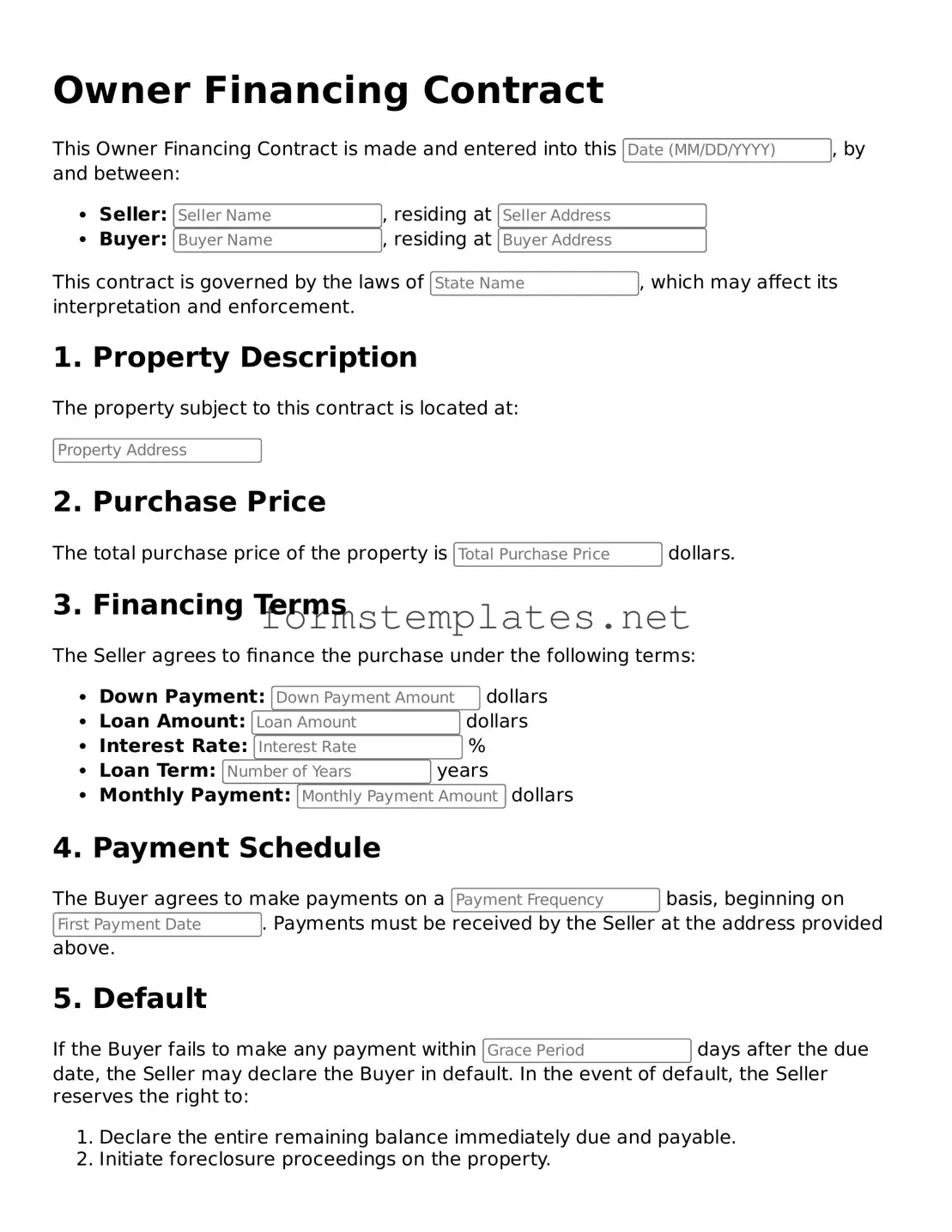Attorney-Verified Owner Financing Contract Form
The Owner Financing Contract form is a legal document that outlines the terms under which a property owner finances the sale of their property directly to a buyer. This arrangement allows buyers to make payments over time rather than securing traditional financing through a bank. Such contracts can provide flexibility for both parties involved in the transaction.
Open Editor Now

Attorney-Verified Owner Financing Contract Form
Open Editor Now

Open Editor Now
or
⇓ PDF Form
Your form still needs attention
Finalize Owner Financing Contract online — simple edits, saving, and download.